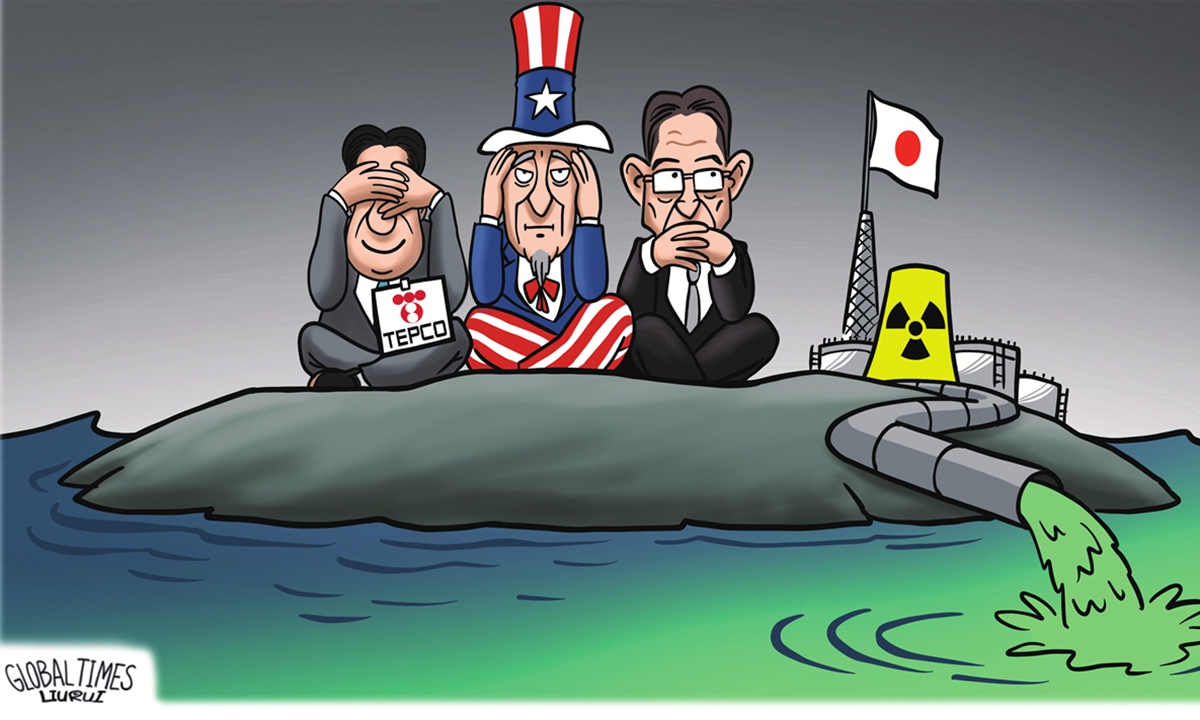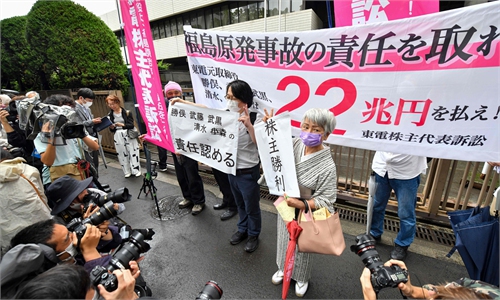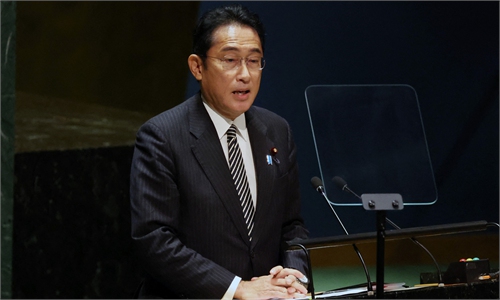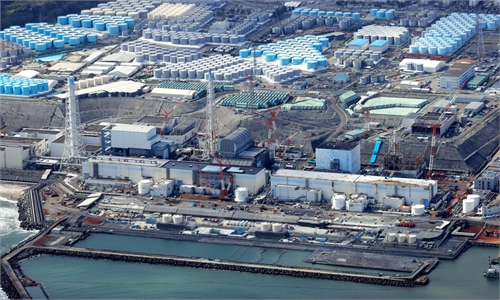US, West play dumb on Japan's wastewater dumping

Illustration: Liu Rui/GT
According to Yonhap News Agency, the South Korean Foreign Ministry said on Friday that Seoul had asked Tokyo to provide transparent security information on the dumping of nuclear-contaminated water from the Fukushima Daiichi nuclear power plant into the sea and take responsible measures to handle the issue.
Japan's decision to dump nuclear-contaminated water into the sea is an irresponsible act that puts its self-interest above human health and violates the human rights of all peoples, including their rights to life and health.
There are at least five options for dealing with nuclear-contaminated water from the Fukushima nuclear power plant, including evaporating or storing it underground. But the Japanese government chose the "cheapest and fastest way" of dumping the water into the sea. This shows that in dealing with the problem, Tokyo's prioritized concern is not to avoid and reduce the damage to human health and well-being and the global marine ecosystem. Instead, it is about minimizing its burden at a lower cost. It is an irresponsible and wrong action for the Japanese government to put its economic interests above the right to life and health.
Since the Japanese government decided to dump nuclear-contaminated water into the ocean, public opinion inside and outside Japan has repeatedly expressed opposition and hope that Tokyo will find a proper, responsible way to deal with nuclear-contaminated water. For example, Reuters reported earlier this month that an expert panel of the Pacific Islands Forum has urged Japan to reconsider the plan of dumping water because it was not supported by data, and more information was needed. "The opposition to the discharge of treated water into the ocean has not changed in the slightest," said recently Masanobu Sakamoto, president of the National Fisheries Cooperative Federation of Japan, on January 13.
Public opinion in Japan and abroad is so opposed to the dumping of nuclear-contaminated water, not only out of strong dissatisfaction with the extremely irresponsible decision made by the Japanese government unilaterally, but also because of collective anxiety over the impact of nuclear-contaminated water on human health and the marine ecological environment. After all, the Pacific is not Japan's sewer, but the ocean shared by all mankind.
The reason why the Japanese government ignores domestic and international opposition and advances the process of dumping Fukushima's nuclear-contaminated water into the sea is not only because it puts economic interests above human rights, but also because the US and the West are playing deaf and dumb on the issue, thus giving the Japanese government the courage to go against the grain. This will undoubtedly pose a serious threat to the rights to life and health of people in neighboring countries and regions.
However, the US and the West, which have always touted human rights, rarely criticize Japan on this issue. Japan is a loyal ally of the US. Therefore, the US and some Western countries, which have been pursuing environmental protection issues such as the Chernobyl Accident and China's carbon emissions and smog, will naturally turn a blind eye to the dumping of Fukushima's nuclear-contaminated water.
The US, the West and Japan are in fact birds of a feather. In terms of dumping nuclear waste into the ocean, they can be said to be the "predecessors" of Japan. Before the London Convention came into effect, the US and the UK had always regarded the ocean as a garbage dump. From 1946 through 1993, thirteen countries used ocean disposal or ocean dumping as a method to dispose of nuclear waste with an approximation of 200,000 tons sourcing mainly from the medical, research and nuclear industry. Among them, the US had dropped more than 90,000 barrels and at least 190,000 cubic meters of radioactive waste into the North Atlantic and Pacific. Hence, the US and the West are now condoning Japan, which is not unrelated to their "previous record" in the last century.
Historically, the Japanese people have been victims of environmental pollution. Now, the dumping of nuclear-contaminated water has a bearing on the common health and well-being of Japan itself, as well as neighboring countries and the international community. Therefore, we urge the Japanese government to respect the legitimate concerns and strong voices of the domestic people and the international community, dispose of nuclear-contaminated water in a scientific, open, transparent, and safe manner, and stop the irresponsible act.
The author is a visiting researcher at the Center for Japanese Studies, Liaoning University. opinion@globaltimes.com.cn



